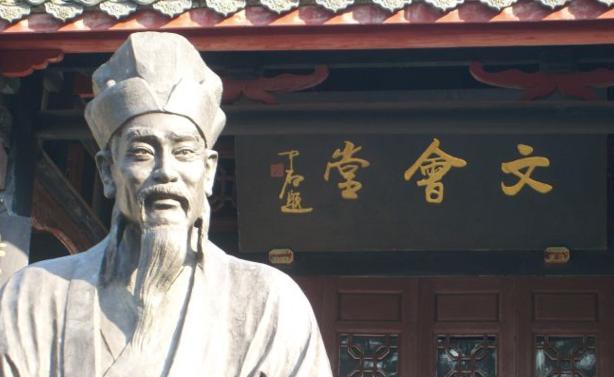
Zhu Xi (朱熹), also spelled Zhongyuan Obscure, also spelled Zhongxi, was known as Zhu Wengong (朱文公). He was born and died between 1130 and 1200. He was a famous theologian, thinker, philosopher, educator, poet of the Song Dynasty, a representative of the Min school, a master of Confucianism, and was known as Zhu Zi. Zhu Xi's theoretical thought had a great influence on the Yuan, Ming, and Qing dynasties, becoming the official philosophy of the three dynasties, and another person in the history of Chinese education after Confucius.
Zhu Xi has always lived in a relative lack of materials throughout his life, and Zhu Xi's poverty is known to the world, but he can be poor and keep the tao, and look up to the world. He advocated adhering to the good heart and resisting the temptation of human desire, only in this way could we reach the realm of the sages. In his view, personal moral cultivation and integrity are the primary conditions for scholars to engage in politics. He held that the scholar must first understand the festival of honesty and retirement, and the fact that the scholar can know the etiquette, righteousness, and shame when he engages in politics and participates in the administration of the government, and does not associate with the "corrupt people." This is not only the basic requirement of honest administration, but also an effective way to improve social customs. Zhu Xi's many ideas on honest government are the precious spiritual wealth of the Chinese nation and are worthy of study and reference by every leading cadre
Video loading...
Source: Overseas Network
Publisher: China Anti-Corruption Media Center
Editor-in-Charge: Ice and snow